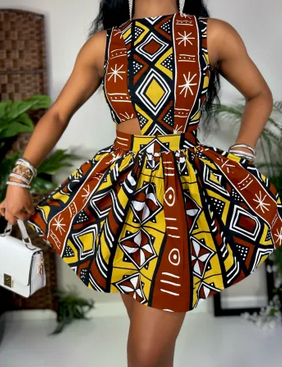
When you yourself have ever gone to any traditional African event, one of the first things you'll notice is the elegant and bright display of traditional African clothing. This often adds color and elegance to the already often energetic scenes.
Traditional African clothing represents one of—if not the biggest—symbols of the continent's rich cultural heritage and diversity. Over the continent, different ethnic groups have their identifying traditional African clothing.
They mostly wear these clothes for special occasions, traditional festivals, and special events. However, some creative designers are now combining traditional African clothing with other materials to produce unique designs. Thus, some hitherto traditional African clothes are becoming everyday wear.
Often, these dresses reflect the traditional society and the status of certain individuals or groups within an ethnic group. Besides their elegance, owning one of these traditional African clothes can allow you to connect to your roots. All 11 traditional African clothing on our list fairly represent all regions of the continent.
What is Traditional African Clothing made of?
Fabrics in making traditional African clothing vary from region to another. For instance, while Sahelian Africans prefer cotton Boubous, Northern Africans naturally make theirs of silk. African clothes are products of mostly silk, cotton, and chiffon material. Sometimes, the most well-liked fabric boils down from what is readily available in each region.
What's typically the most popular African clothing?
Dashiki appears to be the most used African clothing. While it is worn mostly in West Africa, its use has spilled to other parts of the continent. East African users, particularly in Kenya and Tanzania, choose to call it Kitenge.
As you head towards the northern area of the continent, the most used traditional cloth will end up Djellaba. This silk robe is generally worn over other clothes by both men and women. This mode of dressing is predominantly connected with Muslims.
For more details please visit african accessories.
No comments:
Post a Comment